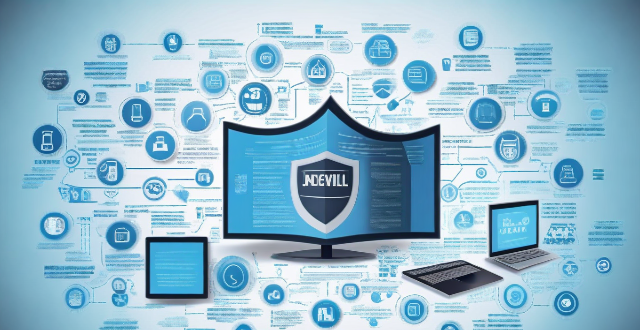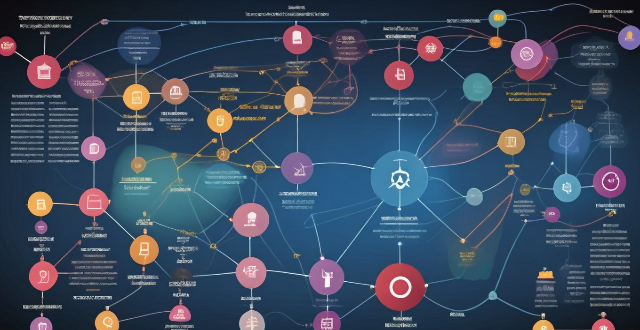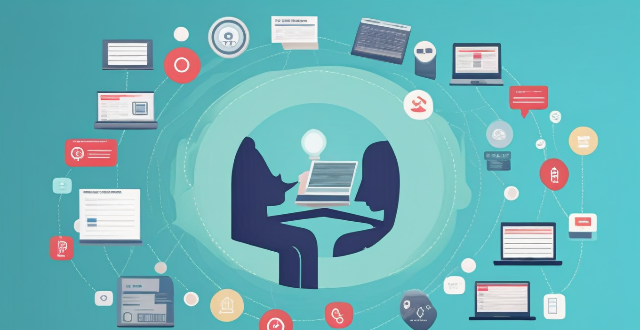Interference Service

What role does frequency play in communication interference ?
The text discusses the role of frequency in communication interference, especially in wireless systems. It outlines types of interference (destructive and constructive), effects such as signal overlap, channel capacity issues, and Doppler shift. Mitigation techniques include frequency hopping, spread spectrum, channel coding, power control, and antenna diversity.

What is the impact of communication interference on emergency services ?
Communication interference can significantly impact emergency services by delaying response time, impairing coordination, increasing risk to responders and victims, disrupting technology, and negatively affecting public perception. It is crucial for emergency services to prioritize reliable communication systems and protocols to minimize the impact of interference and ensure effective responses to emergencies.

How does altitude affect communication interference ?
This article discusses how altitude affects communication interference in wireless communication. It explains the various ways that altitude can impact signal strength, including signal attenuation, refraction and scattering, ionospheric effects, and multipath propagation. The article also provides tips for mitigating these effects, such as increasing transmitter power, using higher frequencies, implementing error correction techniques, using directional antennas, and choosing suitable locations for equipment. Overall, understanding altitude's impact on communication interference is crucial for ensuring effective communication in wireless systems.

What is the impact of communication interference on military operations ?
The text discusses the impact of communication interference on military operations. It highlights five main consequences: loss of situational awareness, delayed response times, compromised security, reduced coordination, and increased risk of misinterpretation. The author emphasizes the importance of secure and reliable communication systems for effective military strategy and suggests developing contingency plans to mitigate the risks associated with communication interference.

Can solar flares cause communication interference ?
Solar flares, intense bursts of radiation from the sun's atmosphere, can disrupt communication systems on Earth. This includes shortwave radio signals, satellite communications, and other terrestrial networks. The effects range from signal quality disruption and frequency deviation to satellite link disruptions, GPS accuracy issues, and even physical damage to satellite hardware. While these impacts vary, organizations involved in critical communication operations must be aware of the risks and implement mitigation strategies to minimize potential disruptions.

Can buildings cause communication interference ?
Buildings can cause communication interference due to obstruction, reflection, and absorption of radio waves. This affects devices like cell phones, Wi-Fi routers, and radios. Strategies such as using external antennas and optimizing Wi-Fi placement can help reduce these effects.

Are iPhone parallel imports eligible for Apple's after-sales service ?
iPhone parallel imports can be eligible for Apple's after-sales service if they meet certain conditions, including proof of purchase, valid warranty, no tampering, and region compatibility.

How does a VPN service work ?
A VPN (Virtual Private Network) is a service that encrypts users' internet traffic and masks their IP addresses to protect their privacy and security online. It consists of a client software installed on the user's device and a server that acts as an intermediary between the user and the internet. VPNs use tunneling protocols and encryption algorithms to establish secure connections, with options for both automated and manual configuration methods. They are particularly useful in masking users' IP addresses and ensuring data transmission security. However, some VPN services may impact internet speeds and raise privacy concerns if they collect and sell user data. When choosing a VPN service, consider its performance, reliability, and privacy policy.

How does weather affect radio communication interference ?
The text discusses how weather conditions can impact radio communication interference. It lists various types of weather such as rainfall, fog, thunderstorms, snow, sunspots, wind, and humidity and explains how each type can affect radio signals. For example, raindrops can absorb and scatter radio waves, reducing the strength of the signal, while thunderstorms can produce static discharges that interfere with nearby frequencies. The text emphasizes the importance of considering these factors when planning and managing wireless communications networks.

How can we prevent communication interference during critical missions ?
To prevent communication interference during critical missions, organizations should use reliable communication systems, minimize environmental factors, train personnel adequately, test equipment beforehand, and use clear and concise language. These strategies can help ensure successful completion of missions by minimizing the risk of communication disruptions.

How do I contact customer service for my mobile operator ?
How to Contact Customer Service for Your Mobile Operator

How can automation be used to improve customer service ?
Automation can significantly enhance customer service by streamlining processes, reducing errors, and providing consistent support. It enables personalized communication through chatbots and email automation, efficient processes via self-service options and backend automation, a consistent experience with standardized responses, cost-effective solutions through scalability, and continuous improvement using feedback loops. As technology progresses, the potential for automation in customer service will continue to expand, leading to more innovative ways to meet customer needs.

Why does my cell phone have no service in some places ?
Cell phone service can be affected by various factors, leading to no service or weak signal in certain areas. The main reasons include network coverage, physical obstructions, technical issues, and other external factors like weather conditions and congestion. It's essential to check with your cell phone provider if you frequently face service issues in specific locations.

What are the common causes of communication interference ?
Communication interference can occur due to physical barriers like noise and technology issues, language differences, cultural norms, emotional factors, personal biases, misunderstandings, lack of active listening, and poor message construction. Being aware of these causes can help individuals improve their communication skills and minimize disruptions in various contexts.

How does Wi-Fi 6 perform in high interference environments ?
Wi-Fi 6, the latest wireless networking standard, offers several advantages over its predecessors in high interference environments. Key features include improved spectral efficiency, target wake time, BSS coloring, and spatial reuse. These features result in lower latency, increased throughput, better energy efficiency, and scalability. Wi-Fi 6 is well-suited for handling a large number of connected devices while maintaining low latency and high throughput, making it an ideal choice for high-density network environments like stadiums, airports, and apartment buildings.

How can we reduce communication interference in a crowded city ?
Reducing communication interference in crowded cities involves using clear language, minimizing background noise, being mindful of nonverbal cues, practicing active listening, and taking breaks when needed.

How can I compare different online shopping sites for their customer service ?
In this article, we discuss how to compare different online shopping sites for their customer service. The first step is to research and gather information by reading reviews and testimonials, checking social media presence, and asking for recommendations from friends or family. The second step is to analyze the information by comparing customer service options, evaluating response time, and assessing quality of service. The final step is to make a decision based on weighing pros and cons and trying before you buy. By following these steps, you can choose an online shopping site that offers excellent customer service and meets your needs.

Should I use a bank or a currency exchange service ?
When it comes to exchanging currencies, you have two main options: banks and currency exchange services. Both have their advantages and disadvantages, so it's important to consider your specific needs before making a decision. Advantages of Using a Bank: - Security: Banks are generally considered more secure than currency exchange services because they are regulated by government agencies. Your money is protected by insurance policies, such as the Federal Deposit Insurance Corporation (FDIC) in the United States. - Convenience: Many banks offer online and mobile banking services, allowing you to easily manage your account and make transactions from anywhere. You can also withdraw cash from ATMs worldwide without additional fees. - Fees: Banks typically charge lower fees for currency exchange compared to currency exchange services. Some banks even offer fee-free currency exchange if you have an account with them. Advantages of Using a Currency Exchange Service: - Better Exchange Rates: Currency exchange services often offer better exchange rates than banks because they specialize in foreign currency exchange. This means you can get more money for your currency than if you were to use a bank. - No Fees: Many currency exchange services do not charge any fees for exchanging currencies. However, some may still charge a small commission or service fee. - Speed: Currency exchange services are usually faster than banks when it comes to exchanging currencies. They often have shorter processing times and can provide you with the currency you need quickly. Disadvantages of Using a Bank: - Limited Availability: Not all banks offer foreign currency exchange services, especially smaller local banks. You may need to visit multiple banks to find one that offers this service. - Higher Fees: As mentioned earlier, banks typically charge higher fees for currency exchange compared to currency exchange services. This can add up quickly if you need to exchange large amounts of currency. Disadvantages of Using a Currency Exchange Service: - Security Risks: Currency exchange services are not regulated by government agencies like banks are. This means there is a higher risk of fraud or theft when using these services. - Limited Locations: Currency exchange services may not be available in all locations, especially in rural areas or smaller towns. You may need to travel to a larger city or airport to find one. - Limited Services: Currency exchange services typically only offer foreign currency exchange and do not provide other banking services like checking accounts or loans. If you need additional financial services, you will need to use a separate bank.

Are there any advantages to using a tax refund service company instead of doing it myself ?
Using a tax refund service company offers several advantages, including time-saving, accuracy, expertise, convenience, and peace of mind. These services can help maximize refunds or minimize tax liability by ensuring accurate tax preparation and staying up-to-date with changing tax laws and regulations.

How do I choose the right VPN service for my needs ?
Choosing the right VPN service is crucial for ensuring your online privacy, security, and accessing geo-restricted content. Here's a guide to help you make an informed decision: 1. Identify Your Needs: Determine what you need the VPN service for, such as privacy and security, accessing geo-restricted content, bypassing censorship, or improving gaming experience. 2. Check the VPN's Location and Jurisdiction: The legal jurisdiction of the VPN provider plays a significant role in your privacy. Look for providers located in countries without strict data retention laws. 3. Encryption and Protocols: The level of encryption and the protocols offered are critical for security. OpenVPN and IKEv2 are considered the most secure and efficient. Avoid VPNs that rely on PPTP or L2TP/IPSec without a separate encryption layer. 4. Server Network and Speed: A vast network of servers worldwide ensures better speed and connectivity. Look for a VPN with numerous servers across different continents. Speed is also crucial, especially if you plan to stream HD videos or download large files. 5. Privacy Policy and Logging: A strict no-logs policy is vital for maintaining your privacy. Always check the privacy policy to ensure they don't collect or share your data. 6. Device Compatibility and User Interface: Choose a VPN that supports all your devices, including smartphones, tablets, and PCs. A user-friendly interface makes it easier to connect and manage your VPN settings. 7. Customer Support: Look for VPNs that offer 24/7 live chat support or at least a responsive ticket system. Good customer service can help resolve technical issues quickly. 8. Price and Value for Money: While free VPNs might seem appealing, they often come with limitations, such as data caps and slower speeds. Paid VPNs offer more features and better performance. Consider the cost against the services provided to determine the best value. 9. Reputation and Reviews: Research the VPN's reputation through reviews and forums. Feedback from other users can provide insights into the reliability and effectiveness of the service. 10. Legal and Ethical Considerations: Ensure that the VPN service you choose complies with local laws and ethical standards. As per the statements from the Ministry of Industry and Information Technology, using a VPN for legitimate business purposes is protected under law. Always use VPNs responsibly and for legitimate purposes. In conclusion, choosing the right VPN service requires careful consideration of your needs, the provider's security measures, server network, privacy policy, device compatibility, customer support, and cost. By following these guidelines, you can find a VPN service that meets your requirements while ensuring your online privacy and security.

What is the role of frequency bands in wireless communication standards ?
In wireless communication, frequency bands dictate signal propagation, spectrum allocation, and interference management. These bands are critical for establishing reliable connections in technologies like Wi-Fi, Bluetooth, cellular networks, and satellite communications. The choice of band influences the range, data rate, and potential interference of a wireless system. Spectrum scarcity and regulatory compliance present challenges that drive innovations in spectrum sharing and cognitive radio technologies. Overall, the role of frequency bands is crucial for efficient and effective wireless communication standards.

What are the pros and cons of wireless vs wired burglar alarm systems ?
This text compares the pros and cons of wireless and wired burglar alarm systems. Wireless systems are easier to install, portable, and expandable, but rely on batteries which need to be replaced regularly and can experience interference from other electronic devices. Wired systems are more reliable, do not experience interference, and have a longer range, but require professional installation, are not portable, and are less flexible when it comes to expanding or changing the layout of the system.

What kind of range can you expect from a Wi-Fi 6 router ?
Wi-Fi 6 routers offer faster speeds and better performance than previous standards. However, their range can be influenced by factors like physical obstacles, interference from other devices, router placement, channel selection, and device capabilities. With optimal conditions, a Wi-Fi 6 router can cover an area of about 1,500 square feet, but this varies based on the mentioned factors. To maximize its range, consider central placement, reducing interference, updating devices, and using quality hardware.

What are the benefits of using a package forwarding service for international shopping ?
**Benefits of Using a Package Forwarding Service for International Shopping** Using a package forwarding service offers several benefits for international shoppers, including cost savings, increased shopping flexibility, potential tax and duty advantages, convenience, additional services, and peace of mind. These advantages make it easier and more efficient to shop from retailers around the globe without directly facing the complexities of international shipping.

What happens to my Apple ID after cancelling an Apple service or product subscription ?
Cancelling an Apple service or product subscription does not affect your Apple ID account. Your Apple ID remains active and you can continue to use it for other services and products offered by Apple. However, the specific service or product that you cancelled will no longer be available to you.

How do I set up a VPN service on my computer or mobile device ?
Setting up a VPN (Virtual Private Network) is an excellent way to ensure your online privacy, bypass geo-restrictions, and enhance your security on the internet. Here's a detailed guide to setting up a VPN service on your computer or mobile device: 1. Choose a VPN Service Provider: Research and select a reliable VPN service that suits your needs in terms of security, speed, and price. Ensure the provider offers apps for your operating system, whether it's Windows, macOS, Android, or iOS. 2. Sign Up for the Service: Visit the VPN service website and sign up for an account. Choose a payment plan and complete the subscription process. 3. Download and Install the VPN App: Once you have subscribed, download the VPN app from your provider's website or your device's app store. Install the app on your device following the standard installation procedures. 4. Configure the VPN App: Open the VPN app and log in using your account credentials. Select a server location; usually, the app will recommend the fastest or closest server to you. Customize the settings if needed, such as enabling startup with Windows or configuring the kill switch feature. 5. Connect to the VPN: Click the connect button in the VPN app to establish a connection to the chosen server. A secure and encrypted tunnel will be created between your device and the server. 6. Verify the VPN Connection: Check your IP address and location using online services like `ipleak.net` to ensure your real identity is concealed. Test the connection by trying to access content that is normally blocked in your region. 7. Troubleshooting: If you encounter connection issues, check your network settings or try connecting to a different server. Make sure your firewall and antivirus software are not blocking the VPN connection. 8. Regular Maintenance and Updates: Keep your VPN app updated to benefit from the latest security features and performance improvements. Monitor your data usage if your VPN service has bandwidth limitations. Additional Considerations: Look for VPN services that offer strong encryption protocols like OpenVPN or IKEv2 for maximum security. Ensure that your VPN service has a strict no-logs policy to protect your online activities from being recorded. Some VPN services allow multiple devices to be connected simultaneously under one account – consider this feature if you use multiple devices.

What type of customer service can I expect at a high-end resort ?
When you visit a high-end resort, you can expect to receive exceptional customer service. The staff at these establishments are trained to provide personalized attention and ensure that your stay is comfortable and enjoyable. Some of the services you can expect include personalized attention, complimentary amenities, concierge services, room service, housekeeping services, and security and safety measures. Overall, a high-end resort will go above and beyond to make sure that your needs are met and that you have an unforgettable experience.

Which shopping apps have a strong focus on customer service and support ?
The provided text discusses the importance of customer service and support in shopping apps. It then goes on to highlight five notable shopping apps—Amazon, Shopify, Etsy, eBay, and Alibaba—that prioritize these aspects. Each app is described in terms of its unique features and services that enhance user experience. For Amazon, it's the live chat and email support, 24/7 availability, and the Mayday button for Fire devices users. Shopify is praised for its multichannel support, extensive knowledge base, and active community forums. Etsy is lauded for its personalized assistance, seller education, and resolution center. eBay's detailed resolution process, security measures, and seller protections are highlighted. Lastly, Alibaba is commended for its Trade Assurance program, legal services, and supplier verification. In conclusion, these shopping apps understand the significance of supporting their users throughout the shopping journey, each offering unique strengths in customer service and support.